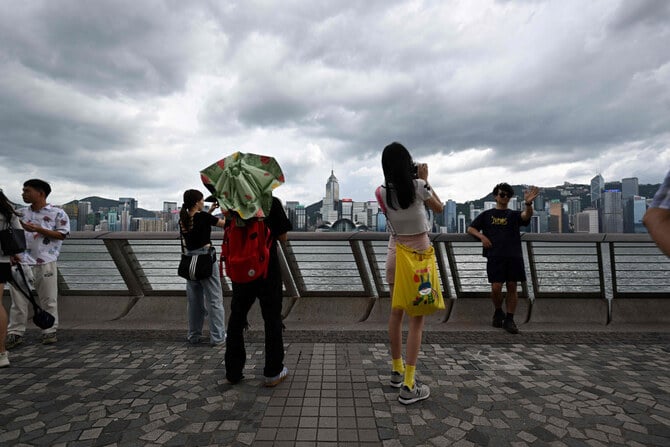Southern China is reeling from the impact of Super Typhoon Yagi, which made landfall early Friday with winds reaching 245 km/h (152 mph).
The storm has caused widespread disruption, shutting down schools, canceling flights, and halting major transportation links.
Yagi, one of the most powerful storms of the year, struck the coast from Wenchang on Hainan Island to Leizhou in Guangdong province. The typhoon's impact was felt across multiple regions, with numerous flights grounded and the Hong Kong-Zhuhai-Macau Bridge closed. In Hong Kong, the stock exchange was shut and schools remained closed due to the severe weather conditions.
The Hong Kong Observatory reported that the typhoon signal 8, which denotes gale-force winds, would be downgraded by 12:40 pm. Despite the anticipated easing of winds, heavy rain and squalls are expected to persist, prompting warnings for residents to stay away from coastal areas.
Vietnam's Civil Aviation Authority has announced the closure of four major airports in northern Vietnam, including Hanoi’s Noi Bai International, in anticipation of Yagi’s continuing effects.
In response to the storm, the Chinese government has dispatched emergency response teams to manage flood and typhoon prevention efforts. Streets in Hainan’s capital, Haikou, were deserted as residents complied with safety advisories.
Historically, Hainan has experienced relatively few super typhoons. Out of 106 typhoons impacting the island from 1949 to 2023, only nine were classified as super typhoons. This event underscores the increasing intensity of storms, attributed to rising ocean temperatures linked to climate change.
Yagi, named after the Japanese word for "goat," signifies the storm’s formidable strength. As recovery efforts begin, officials are closely monitoring the situation and working to mitigate further impact.
The storm has caused widespread disruption, shutting down schools, canceling flights, and halting major transportation links.
Yagi, one of the most powerful storms of the year, struck the coast from Wenchang on Hainan Island to Leizhou in Guangdong province. The typhoon's impact was felt across multiple regions, with numerous flights grounded and the Hong Kong-Zhuhai-Macau Bridge closed. In Hong Kong, the stock exchange was shut and schools remained closed due to the severe weather conditions.
The Hong Kong Observatory reported that the typhoon signal 8, which denotes gale-force winds, would be downgraded by 12:40 pm. Despite the anticipated easing of winds, heavy rain and squalls are expected to persist, prompting warnings for residents to stay away from coastal areas.
Vietnam's Civil Aviation Authority has announced the closure of four major airports in northern Vietnam, including Hanoi’s Noi Bai International, in anticipation of Yagi’s continuing effects.
In response to the storm, the Chinese government has dispatched emergency response teams to manage flood and typhoon prevention efforts. Streets in Hainan’s capital, Haikou, were deserted as residents complied with safety advisories.
Historically, Hainan has experienced relatively few super typhoons. Out of 106 typhoons impacting the island from 1949 to 2023, only nine were classified as super typhoons. This event underscores the increasing intensity of storms, attributed to rising ocean temperatures linked to climate change.
Yagi, named after the Japanese word for "goat," signifies the storm’s formidable strength. As recovery efforts begin, officials are closely monitoring the situation and working to mitigate further impact.


















